Daniel Craig’s James Bond films may form a single connected story arc but the transitions between films are rarely smooth. In a way, No Time to Die is a direct sequel to Spectre, but the two films ultimately offer vastly different approaches to the style, storytelling, and tone of a James Bond film. I’ve always enjoyed Spectre but it’s a film with several major flaws, and, because No Time to Die is tied to the previous film so intensely, I thought it may be worth a revisit to see if the latest, and superior, Bond film either improves Spectre or further highlights its issues.
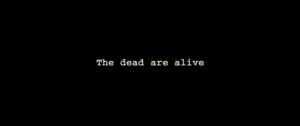 Spectre begins with an opening chyron stating “The dead are alive” and this really captures the empty pretentiousness of the film. This idea is a key theme of the film, returning in multiple ways, but like a lot of John Logan-scripted franchise movies, such as Star Trek: Nemesis and Alien: Covenant, it deals heavily in themes but then ends up having nothing to say about them. The point is missing. The whole film has this confidence that begins to feel like arrogance when it starts to fall apart around the 90-minute mark. Spectre treats itself very seriously while No Time to Die often feels like a loving throwback to the sheer ridiculousness of Bond films of the past, doing everything with a permanent Lucille Bluth wink to the audience.
Spectre begins with an opening chyron stating “The dead are alive” and this really captures the empty pretentiousness of the film. This idea is a key theme of the film, returning in multiple ways, but like a lot of John Logan-scripted franchise movies, such as Star Trek: Nemesis and Alien: Covenant, it deals heavily in themes but then ends up having nothing to say about them. The point is missing. The whole film has this confidence that begins to feel like arrogance when it starts to fall apart around the 90-minute mark. Spectre treats itself very seriously while No Time to Die often feels like a loving throwback to the sheer ridiculousness of Bond films of the past, doing everything with a permanent Lucille Bluth wink to the audience.
I do really enjoy the opening sequence of Spectre, with a long single shot beginning a sequence that ends in a fight aboard a helicopter in Mexico City. It doesn’t top the pre-credits teaser of Craig’s final film but it almost feels wrong to compare them considering No Time to Die’s is almost a whole act unto itself. No Time to Die also uses the ‘oner’ technique for an action sequence, which shows just how the two films differ. Compared to the more recent entry, Spectre almost feels ashamed of the larger, sillier elements of the franchise, keeping most action beats smaller and contained, the pre-credits sequence being one of only two big spectacles, the plane chase being the other. The car chase is just two cars driving like a commercial, with a gag about the car’s ammunition not being loaded feeling like a cheap way to avoid it becoming a ‘silly’ action scene. The fight on the train is good as a one-on-one battle but that’s the last decent action scene with over an hour left of the film.
 The scale of Spectre fluctuates while No Time to Die is as big as it can be in every way possible. It may be the longer film but No Time to Die moves at such a pace that Spectre feels sluggish by comparison. It begins big but the last hour feels incredibly small in scale. Instead of No Time to Die’s visceral action, which still leaves room for character, there’s just a large explosion and quick, boring gunplay where Bond employs an aim-bot while his rivals can’t hit a thing. The climax is Bond running through an empty building before shooting at a fleeing helicopter with a handgun. Considering it begins with such a dynamic action beat involving a helicopter, it ends with an incredibly lame one. Spectre does intimate dialogue scenes very well, of which there are far too many, but less so the bigger scenes.
The scale of Spectre fluctuates while No Time to Die is as big as it can be in every way possible. It may be the longer film but No Time to Die moves at such a pace that Spectre feels sluggish by comparison. It begins big but the last hour feels incredibly small in scale. Instead of No Time to Die’s visceral action, which still leaves room for character, there’s just a large explosion and quick, boring gunplay where Bond employs an aim-bot while his rivals can’t hit a thing. The climax is Bond running through an empty building before shooting at a fleeing helicopter with a handgun. Considering it begins with such a dynamic action beat involving a helicopter, it ends with an incredibly lame one. Spectre does intimate dialogue scenes very well, of which there are far too many, but less so the bigger scenes.
The perfect encapsulation of the differences between the two films are their approaches to SPECTRE meetings. There’s one in each film and they couldn’t be more different. Spectre has a very quiet scene in an old, majestic building, with lots of serious low talking, faces in shadow, and a scary atmosphere. It’s actually one of my favourite scenes of the film because it successfully hits the tone it’s striving for; it’s an unsettling journey into the lion’s den. No Time to Die instead has the meeting be a vibrant birthday party, with dancing, Blofeld watching over everyone with a robotic eye, and a ludicrous trap for Bond involving killer nanobots, before evolving into a spectacular action sequence. It’s big and knowingly silly compared to Spectre’s self-seriousness. Which you prefer comes down to personal taste and, while both are effective, I love the sillier side of Bond.
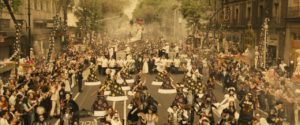 After seeing how visually bright, vivid, and exotic No Time to Die looks, revisiting Spectre was literally a dull affair. It begins in Mexico City and has that washed-out yellow tint to everything that Breaking Bad used so prominently. This wouldn’t much of a problem if every location had a different style but they use the exact same colour-grading filter for the scenes set in Tangier, whereas every location in No Time to Die looks and feels unique. The film is completely devoid of colour, which is such a shame after Skyfall, maybe the best-looking film in the entire franchise. Although, I did like picking up on the fact that the hotel room in Tangier does resemble the hotel room in Matera in No Time to Die as a cool way to link the beginning and end of Bond and Madeleine’s relationship.
After seeing how visually bright, vivid, and exotic No Time to Die looks, revisiting Spectre was literally a dull affair. It begins in Mexico City and has that washed-out yellow tint to everything that Breaking Bad used so prominently. This wouldn’t much of a problem if every location had a different style but they use the exact same colour-grading filter for the scenes set in Tangier, whereas every location in No Time to Die looks and feels unique. The film is completely devoid of colour, which is such a shame after Skyfall, maybe the best-looking film in the entire franchise. Although, I did like picking up on the fact that the hotel room in Tangier does resemble the hotel room in Matera in No Time to Die as a cool way to link the beginning and end of Bond and Madeleine’s relationship.
Daniel Craig’s era feels unique in the Bond canon because of how much the character develops through his five films. No Time to Die offers an acting showcase, maybe not Craig’s best performance overall but certainly his most varied, delving into the anger of Casino Royale and the suave confidence of Skyfall. Spectre feels much more one note, but it is a note I enjoy. It’s Craig’s most relaxed performance. Bond acts as if he’s bemused by everything, taking everything in his stride. I remember Craig being accused of being tired and fed up at the time, barely trying anymore, but I quite like the performance as an evolution. I just don’t think it fits the movie. He comes up against the author of all his pain, the villain behind his world repeatedly falling apart, yet he’s at his most calm. The only burst of emotion is when he demands Mr White’s death not be shown to Madeleine, a good moment in a lacklustre scene.
Revisiting Spectre with the knowledge of what happens next was an interesting experience, and there are some unexpected connections. After playing such a huge role in No Time to Die, the injecting of nanobots into Bond’s blood, this time to track him, was a fun link. I’ve discussed the thematic idea of Bond being literally toxic to those around him before and this only adds to the idea. The thing that prevents him from settling down, his job, is literally in his veins, a fibre of his being.
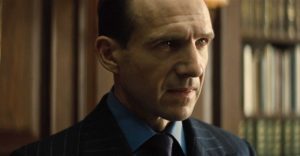 However, one element that doesn’t connect, is that in Spectre Bond and his allies are fighting to keep the 00-program relevant. M is trying to prove his agents are not obsolete while his villainous rival C wants to replace them with technology. Yet in No Time to Die it’s revealed that M is wanting to use the Heracles technology instead of agents, and because Bond is familiar with the project, it means M was developing it before the events of Spectre when he leaves the service. M’s opinions on the matter don’t add up and his great speech about having to look people in the eye and make the call of whether to pull the trigger or not in Spectre no longer makes sense with what he believes in No Time to Die.
However, one element that doesn’t connect, is that in Spectre Bond and his allies are fighting to keep the 00-program relevant. M is trying to prove his agents are not obsolete while his villainous rival C wants to replace them with technology. Yet in No Time to Die it’s revealed that M is wanting to use the Heracles technology instead of agents, and because Bond is familiar with the project, it means M was developing it before the events of Spectre when he leaves the service. M’s opinions on the matter don’t add up and his great speech about having to look people in the eye and make the call of whether to pull the trigger or not in Spectre no longer makes sense with what he believes in No Time to Die.
I’ve been pretty negative about Spectre and the filmmaking behind it but the truth is I do enjoy the first 90 minutes quite a lot from a storytelling perspective. Bond as a detective, on the trail of the eponymous organisation, is great. It’s when the film gets needlessly personal that it starts to decline and comparison with No Time to Die cements why. The new film is successful at balancing the greater plot and the human relationship that is happening within it, created by it. Spectre expects Bond to have a human relationship with the greater plot itself. Bond being revealed to be Blofeld’s adopted brother is the pinnacle of this. It’s a contrived connection and a stupid development. Even the name reveal of ‘Blofeld’ means nothing to the characters, like the Khan reveal in Star Trek Into Darkness. Nothing would change if he was called Oberhauser. It’s purely for the viewer.
 How does No Time to Die ‘fix’ this issue surrounding SPECTRE? By killing off every member including Blofeld, of course. The film gives us a new villain, as close to the personification of evil as you can get, with a name eerily similar to Lucifer Satan. Such drastic action would be a misstep and a waste of so much set-up if I cared about Blofeld by the end of Spectre but I don’t. No Time to Die closes the book on them, but not before giving us a few scenes with Blofeld, the prison interrogation being better than anything in Spectre. What works with Safin is that there’s a personal connection with Bond through Madeleine, which makes sense, and keeps hero and villain once removed. Every action Bond takes against Safin speaks for his love for Madeleine whereas Bond’s moves against Blofeld lack any weight because he doesn’t care about him, even with the personal connection.
How does No Time to Die ‘fix’ this issue surrounding SPECTRE? By killing off every member including Blofeld, of course. The film gives us a new villain, as close to the personification of evil as you can get, with a name eerily similar to Lucifer Satan. Such drastic action would be a misstep and a waste of so much set-up if I cared about Blofeld by the end of Spectre but I don’t. No Time to Die closes the book on them, but not before giving us a few scenes with Blofeld, the prison interrogation being better than anything in Spectre. What works with Safin is that there’s a personal connection with Bond through Madeleine, which makes sense, and keeps hero and villain once removed. Every action Bond takes against Safin speaks for his love for Madeleine whereas Bond’s moves against Blofeld lack any weight because he doesn’t care about him, even with the personal connection.
No Time to Die made the bold move of basing the entirety of the plot and emotional fate of Bond’s character on his relationship with Madeleine Swann, which is especially troublesome because I never bought into their relationship in Spectre. Yet it worked. The two have great chemistry in No Time to Die, she’s engaging, and I felt her inner conflict more. But now, revisiting Spectre after falling for the character myself, I like her much more in her debut. I don’t know how much of that is fair or unfair on the movie, whether there was always more to Madeleine than I gave the film credit for or whether it is all retroactive reappraisal after No Time to Die, but she was a revelation to me on this viewing. She’s still no Vesper and the chemistry isn’t there at the start when she’s cold and angry towards Bond, but having seen them together in the following film, Bond’s decision to leave with her does strike truer than it once did. The scene where he gives her a gun is great and who better to understand Bond than the daughter of an assassin. She wants Bond to do what she did and leave this life behind.
 At one point in Spectre, Madeleine briefly recounts how a man came to kill her father when she was young and how she used her father’s hidden gun to fend him off, his fate ambiguous, giving her a disliking of the weapon. This, of course, is recreated in the opening scene of No Time to Die when Safin turns into Michael Myers in a single scene that’s a better Halloween movie than the entirety of Halloween Kills. The story does match up with what we see, and while I’m sure the writers had no idea this story would become so important when they first wrote it, the connection works. The only possible inconsistency is Mr White stating his wife “left long ago” when we actually saw her get gunned down by Safin. But hey, maybe he spoke euphemistically because he doesn’t want to accept what happened or he simply remarried.
At one point in Spectre, Madeleine briefly recounts how a man came to kill her father when she was young and how she used her father’s hidden gun to fend him off, his fate ambiguous, giving her a disliking of the weapon. This, of course, is recreated in the opening scene of No Time to Die when Safin turns into Michael Myers in a single scene that’s a better Halloween movie than the entirety of Halloween Kills. The story does match up with what we see, and while I’m sure the writers had no idea this story would become so important when they first wrote it, the connection works. The only possible inconsistency is Mr White stating his wife “left long ago” when we actually saw her get gunned down by Safin. But hey, maybe he spoke euphemistically because he doesn’t want to accept what happened or he simply remarried.
Spectre ends with Bond and Madeleine driving off into the sunset, a happy ending if you prefer this one over Bond’s death in No Time to Die. The issue is that I found that the core plot of the film wasn’t connected to Bond’s decision to leave the service. He has to stop Blofeld, the guy who keeps destroying his world so he can build a new one? Maybe, but if that’s the case then him leaving Blofeld alive to once again destroy his life with Madeleine in the next film makes little sense. Spectre’s plot and characterisation feel like disparate elements whereas they are intrinsically linked in No Time to Die. That film literally injects the plot into Bond’s veins to have him make the ultimate character decision. Spectre works as a plot culmination of the Craig films in a “look, all the villains are connected!” sense, but No Time to Die works as a character culmination for Daniel Craig’s Bond, as he sheds his armour and embraces his humanity.
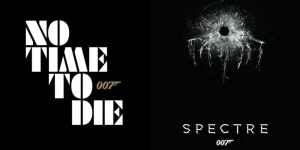 Spectre’s third act is a chore to get through and drags the whole film down, some silly decisions torpedoing what could have been another great Daniel Craig Bond film. Yet some aspects that didn’t once work are indeed improved by the existence of No Time to Die, most notably the relationship between Bond and Madeleine Swann. In terms of filmmaking, the tone and style and attitude and action, I think No Time to Die makes Spectre seem much duller, although that likely depends on which style you prefer, and I love the bolder, bigger, sillier aspects of Bond. But I will counter some of the hate for Spectre I see online. The Blofeld of it all is terrible but the first half, the Bond detective movie, is entertaining and, after getting more of what I personally prefer out of No Time to Die, I am glad these films are varied in the way that they are. It’s an imperfect series but its ability to adapt and change is its biggest strength.
Spectre’s third act is a chore to get through and drags the whole film down, some silly decisions torpedoing what could have been another great Daniel Craig Bond film. Yet some aspects that didn’t once work are indeed improved by the existence of No Time to Die, most notably the relationship between Bond and Madeleine Swann. In terms of filmmaking, the tone and style and attitude and action, I think No Time to Die makes Spectre seem much duller, although that likely depends on which style you prefer, and I love the bolder, bigger, sillier aspects of Bond. But I will counter some of the hate for Spectre I see online. The Blofeld of it all is terrible but the first half, the Bond detective movie, is entertaining and, after getting more of what I personally prefer out of No Time to Die, I am glad these films are varied in the way that they are. It’s an imperfect series but its ability to adapt and change is its biggest strength.
Has No Time to Die affected your opinion on Spectre? Let me know in the comments and be sure to geek out with me about TV, movies and video-games on Twitter @kylebrrtt.




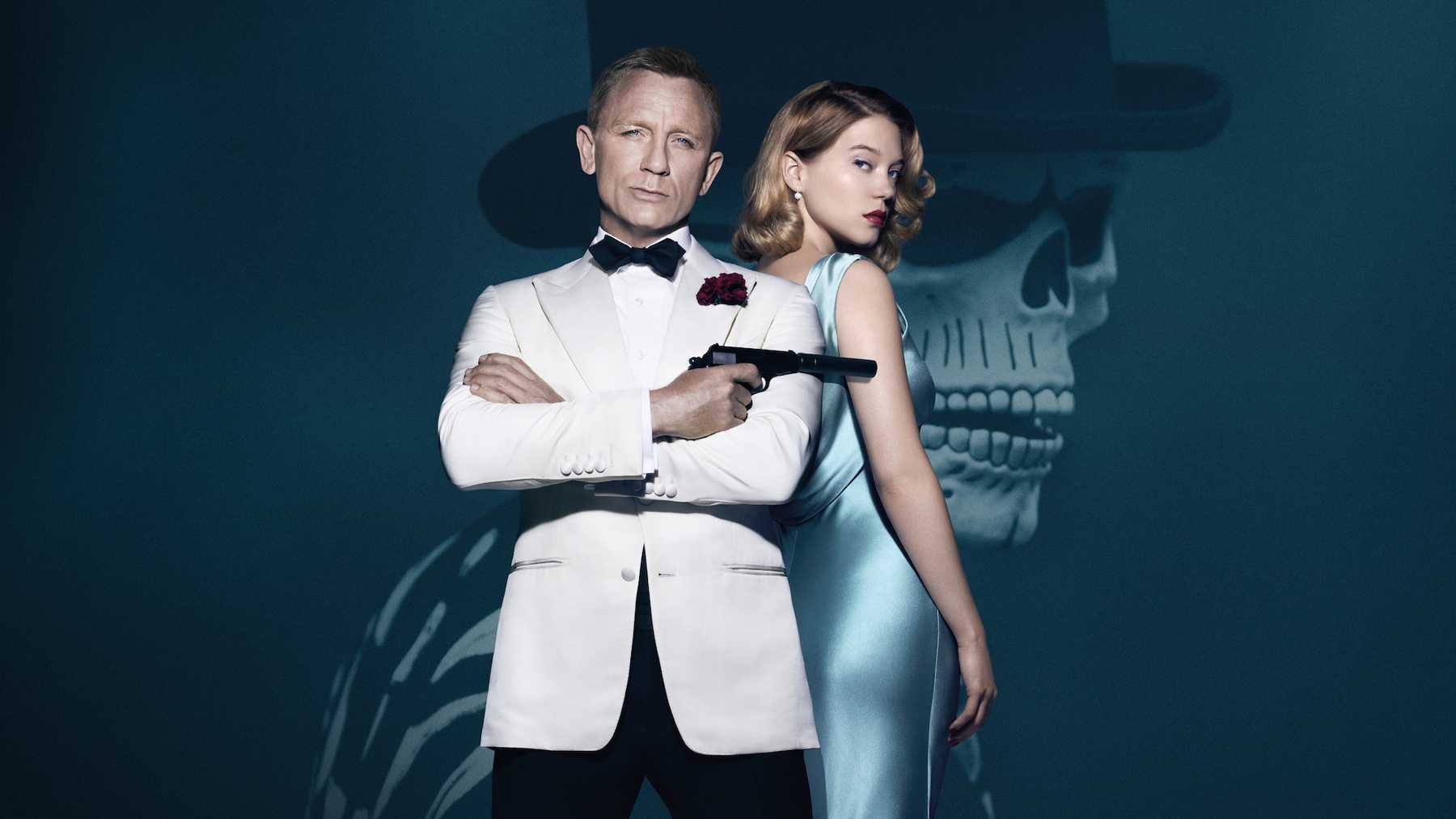
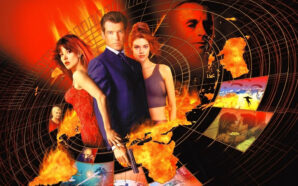

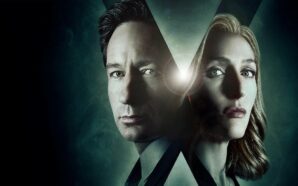

No Time to Die definitely enhances Spectre for me. After watching NTTD, I went back and watched Spectre and it’s a lot better than I initially gave it credit for.
I didn’t have much problem with the Blofeld half-brother reveal but after reading through your article, it was kind of an unnecessary link given that Blofeld says you meddled in my world, I destroy yours. That was enough pathos/motivation right there to cement Blofeld’s desire to end Bond (especially since Bond keeps coming). It’d be a bit straight forward but eh, better straight forward than unnecessary left field twists.
But my main gripe was Madeline. I always felt that they fell for each other far too easily and that chemistry that’s ablaze in NTTD is absent in Spectre. Yet, one could argue that the lack of chemistry is perfectly fine for two individuals still learning each other and just met.
More than anything, Spectre, much like QoS, is kind of a bookend to another movie. QoS on it’s own is kind of an “ehhhhh” Bond movie, but watching it back to back with Casino Royale really makes QoS stand out and sing as it’s a resolution for a lot of story beats that CS sets up. Similarly, Spectre is kind of left hanging as NTTD is the resolution of Spectre and equally should be watched back to back.
Come to think of it, Skyfall is really the only true Craig-era standalone Bond movie. It’s an excellent breather breaking up CS/QoS and S/NTTD. Amazing that we only got that movie because the producers got cold feet over having a continual narrative across Bond movies because of QoS’s reception.
Last, I stand with you about the first 90 minutes being excellent, like a detective story. I loved everything up to and including the train-ride to nowhere, and how off-kilter that whole setup was. Equal parts creep and menace.
Where I part with you is the whole aimbot bit. I quite liked Bond showing off his skill as an assassin in that escape. Not many characters could pull off those kind of shots and it separates him from his other contemporaries. Same with the copter chase. Instead of a missile launcher, or heavier artillery, he brought it down with impeccable aim and pistol.
The ending works with his character growth. M makes the point of knowing when to pull the trigger, and when not to, and he decides to do what’s right and not end Blofeld, much like he doesn’t end the guy at the end of QoS. He escapes with Madeline to a new life partly because he makes this call.
Craig was a killer in the first two but skyfall as gorgeous as it is , feminized him a little for the audience . Quantum is underrated. Nttd was wonderful except the end. Spectre will age well. It already has.